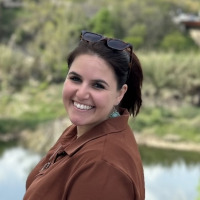Alcohol and Drug Use Statistics in Asheville, NC
The following statistics reveal substance abuse and overdose rates in Asheville:2,3,4,5
Buncombe County saw a 5% decrease in overdose deaths in 2020.
In 2018, there were 265 opioid overdose ED visits in Buncombe County.
Overdose emergency department visits decreased by 7% in 2021.
Levels of Care for Addiction Treatment Settings
There are various types and settings of drug rehab, varying in structure and intensiveness.
Professional Detox
If you are dependent on alcohol or drugs like opioids, quitting can lead to uncomfortable withdrawal symptoms. Inpatient and outpatient detox can help manage your withdrawal symptoms and reduce the risk of relapsing to substance use.
Inpatient Care
Residential rehab is the most structured and intensive setting, providing a peace and serene environment to jumpstart your recovery, away from everyday stressors. You live at the treatment center during treatment and receive a variety of therapies and interventions.
Partial Hospitalization Programs (PHPs)
A step down from inpatient rehab, you attend several hours of treatment per day and return home during non-treatment hours (typically the evening or nighttime). This is a great option for someone who needs a high level of care but doesn’t want to stay overnight at a residential facility.
Intensive Outpatient Programs (IOPs)
Less intensive than PHP, an IOP involves several hours of therapy per week, often visiting the treatment center between three and five days each week. This is often used as a step-down option from inpatient or PHP, though some people’s first point of contact with substance abuse treatment may be an IOP, especially if their addiction is mild or they want to continue working or attending school while recovering.
Standard Outpatient
The least intensive treatment option, standard outpatient, involves one to two hours of treatment per day for one or two days per week. This option has the least oversight and supervision, which increases the risk of relapse; however, highly motivated people with a strong support system may find this level beneficial.
Aftercare
Support doesn’t end once you complete your drug rehab program—it’s important to receive aftercare, which can provide you with ongoing support and encouragement in the form of 12-step groups, non-12-step groups like SMART Recovery, ongoing therapy, sober living homes, and more.
Financing Drug and Alcohol Rehab in North Carolina
If you are worried that you won’t be able to afford drug and alcohol rehab, check out these strategies for financing addiction treatment.
Private Insurance
If you have private health insurance through work or purchased from the Healthcare Marketplace, you can use it to cover the cost of drug and alcohol rehab, either partially or fully, depending on the treatment program you choose.
North Carolina Medicaid
North Carolina Medicaid is a government program providing health insurance coverage for low-income families and individuals. If you have Medicaid, you can use it to cover substance abuse treatment services, although you’ll want to make sure to find a rehab that accepts this form of payment.
Medicare
If you have North Carolina Medicare, you can use it to pay for the cost of drug and alcohol treatment services; however, you’ll want to make sure to find a facility that accepts Medicare.
TRICARE in North Carolina
North Carolina is in the East Region for TRICARE and provides coverage for drug and alcohol addiction treatment and rehab for military personnel, retirees, and their families.
Sliding Scale Rehabs
If you need financial assistance, you can seek out a sliding scale rehab, which charges a reduced price based on your income.
IHS-Funded Drug Rehabs
The Indian Health Service funds various alcohol and drug treatment centers that provide free care to Indigenous people with substance use disorders.
Traveling to and Within Asheville, NC
 Nestled between the Great Smokies and the Blue Ridge Mountains, Asheville, NC offers an abundance of adventures for outdoor enthusiasts. Hikers, bicyclists, and paddlers head here to take in the gorgeous nature settings. A vibrant downtown also draws locals and visitors to antique ships, a lively arts scene, and popular breweries. And the luxurious Biltmore Estate, a world-renowned architectural masterpiece, is by far the city’s biggest attraction.
Nestled between the Great Smokies and the Blue Ridge Mountains, Asheville, NC offers an abundance of adventures for outdoor enthusiasts. Hikers, bicyclists, and paddlers head here to take in the gorgeous nature settings. A vibrant downtown also draws locals and visitors to antique ships, a lively arts scene, and popular breweries. And the luxurious Biltmore Estate, a world-renowned architectural masterpiece, is by far the city’s biggest attraction.
For those traveling to Asheville, NC for rehabilitation treatment or to visit someone in treatment, here are a few helpful tips about the area.
- The Asheville Regional Airport (AVL) is just 15 minutes south of downtown and offers many direct-flight options.
- Asheville’s airport is served by major rental car companies, taxis, shuttles, and public transit options.
- Alternatives to Asheville Regional Airport include Greenville-Spartanburg International Airport (1.25 hours away) and Charlotte Douglas International Airport (2 hours away).
- Asheville has a Greyhound bus station five minutes from downtown, with one-way or roundtrip tickets available from many cities across the U.S.
- The Asheville Visitor Center near downtown is open seven days a week and offers maps and local information.
- Both Uber and Lyft operate in Asheville, and offer convenient rides for airport travel or to stops around town.
- Downtown Asheville is very walkable, with many shops and restaurants to explore.
- Trolley and segway tours are great ways to experience Asheville and get to know the city.
North Carolina Drug and Alcohol Laws
Below are some important North Carolina laws related to substance misuse:1
North Carolina Recovery Courts: Non-violent offenders can go to court-ordered drug rehab instead of serving jail time.
North Carolina Good Samaritan Overdose Law: Witnesses to overdoses can receive immunity from prosecution when they call 911 to save a person’s life.
Resources
- Patel, A. (2022, May 31). Polysubstance use rising in the mountains, particularly involving methamphetamine. WLOS. https://wlos.com/news/local/polysubstance-use-methamphetamine-asheville-buncombe-henderson-haywood-counties-wnc-western-north-carolina
- James, A. (2021, November 18). Amid 28.5% increase in overdose deaths in U.S., Buncombe County reports 5% decrease. WLOS. https://wlos.com/news/local/amid-285-increase-in-overdose-deaths-in-us-buncombe-county-reports-5-decrease
- Staff, S. N. (2022, January 25). “Poison”: Mountain county reports record number of fentanyl trafficking cases. Spectrum News 1 Charlotte. https://spectrumlocalnews.com/nc/charlotte/news/2022/01/25/buncombe-co–reports-record-number-of-drug-trafficking-cases
- Opioid addiction symptoms & treatment – Buncombe County. (n.d.). Asheville, NC. Retrieved September 22, 2022, from https://www.buncombecounty.org/governing/depts/hhs/initiatives/closer.aspx
- Jones, A. (2022, April 18). Buncombe 2020 overdose death rate among NC’s highest. An incoming $16M is supposed to help. Asheville Citizen Times. https://www.citizen-times.com/story/news/2022/04/18/buncombe-county-nc-2020-overdose-deaths-highest-percentile/7330251001/



